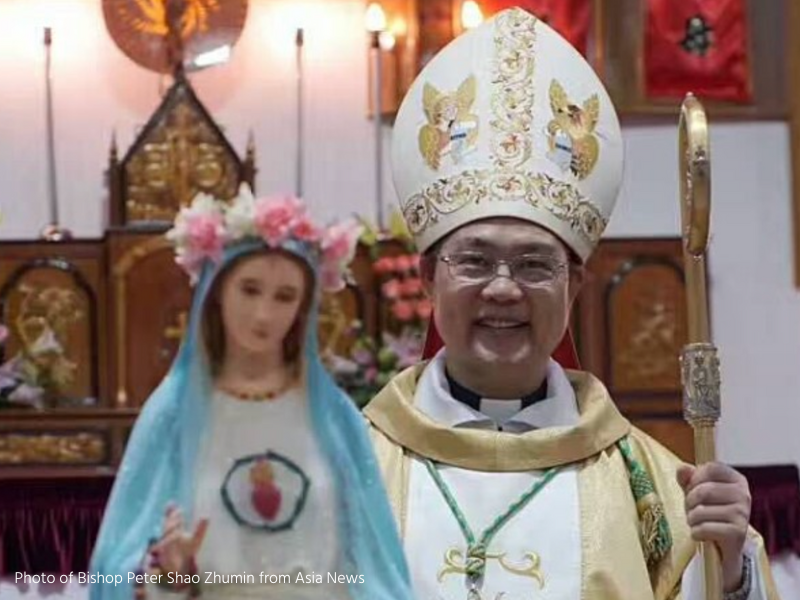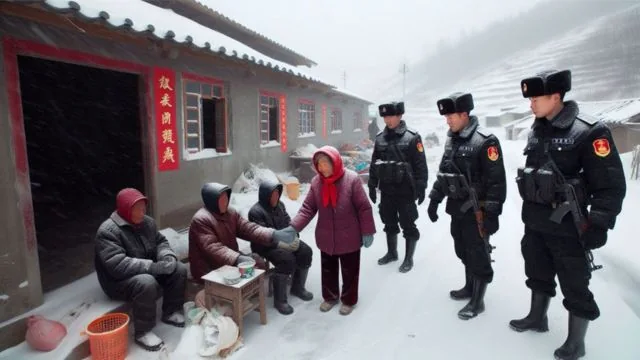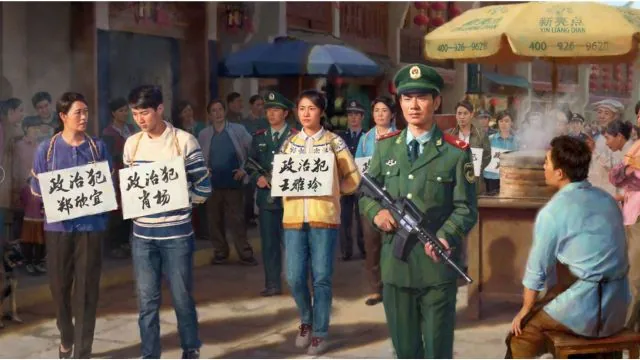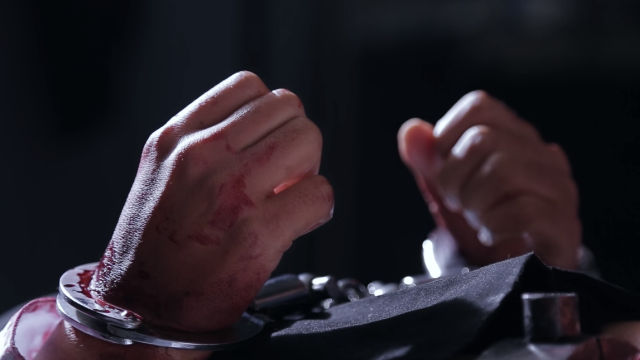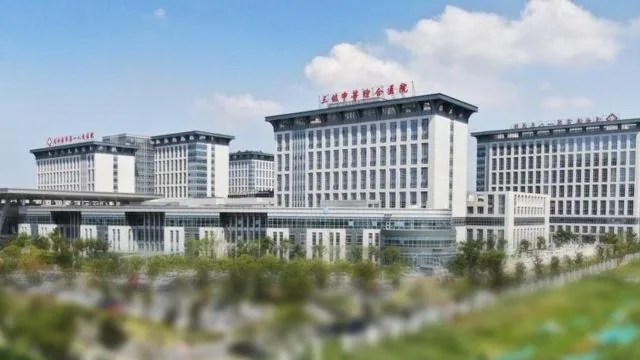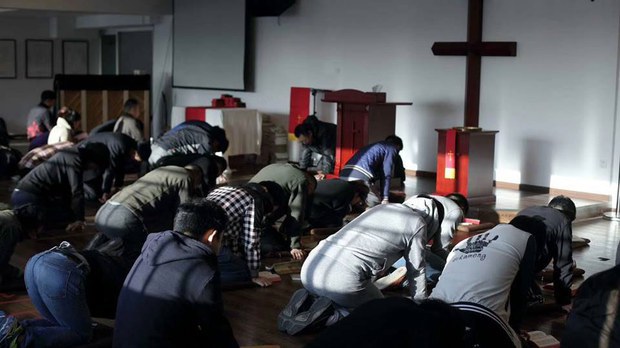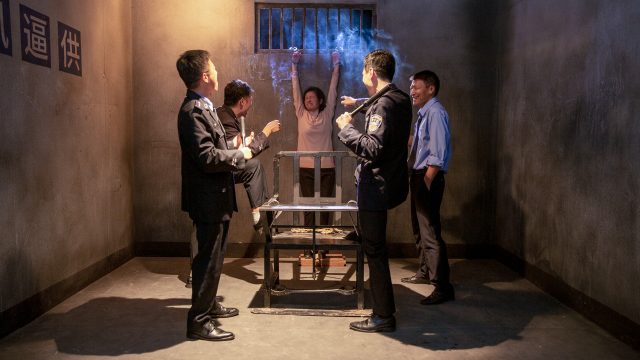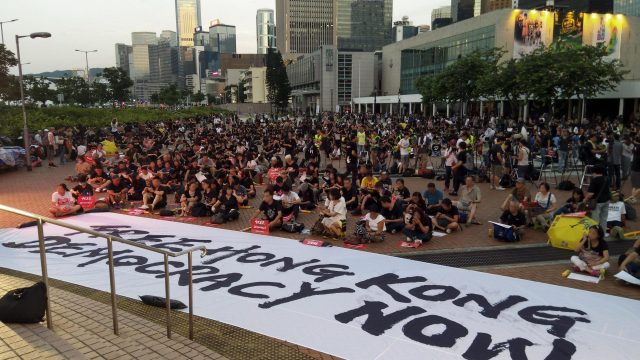
Hong Kong police on Friday turned down an application by march organizers the Civil Human Rights Front (CHRF) to hold a pro-democracy march on Oct. 1, China’s National Day, saying there was a risk of violence and widespread transmission of coronavirus.
The organizers had planned to march from Causeway Bay to the Central business district on Thursday, a date which also coincides with the Mid-Autumn Festival in the traditional lunar calendar.
“We have received Letter of Objection from #HKPolice on 10.1 Rally,” the CHRF said via its Twitter account on Friday, adding: “We will appeal.”
A copy of the letter posted by the CHRF said there had been “various violent incidents” during previous marches organized by the group, and that the proposed march passed by “high-risk buildings” including police headquarters and the High Court.
“Given that the public mood is still unstable right now, police have good reason to believe that some protesters will turned aside from the planned route in order to carry out violent acts of vandalism,” the letter said.
CHRF convenor Jimmy Sham has called on Hongkongers to wear black instead to register their protest over the incommunicado detention of 12 Hong Kong activists in a Shenzhen detention center after they tried to flee to the democratic island of Taiwan by speedboat.
None of the lawyers appointed by the families of the 12 activists, aged 16 to 33, has been allowed to meet with their clients.
A lawyer instructed by the family of Yim Man Him told RFA on Friday that he had been refused permission to visit his client by authorities at Shenzhen’s Yantian police department on Thursday.
The lawyer then went to the municipal judicial affairs bureau, where he discovered that two government lawyers had already been appointed to act on behalf of Yim. The “request for legal aid” was dated on the same day, he said.
The lawyer told RFA that the speed with which the request was made suggested that it had been triggered by his request for a meeting with Yim.
Jailed for rioting
The protest ban came as a court in the city handed down a four-year jail term to a 26-year-old man for “rioting” and breaking his bail conditions, after he allegedly assaulted a non-uniformed police officer during a protest outside police headquarters on June 26, 2019.
Passing sentence on Shum Hiu-lun, judge Anthony Kwok said that while the officer was uninjured by the incident, the presence of a large crowd at the time justified a harsher penalty.
Shum was also masked at the time, in an apparent bid to hide his identity, which the judge said he counted as an aggravating factor.
Kwok said protesters had completely blocked all entrances to the police compound, severely affecting police operations and acted “in an extremely provocative and insulting manner.”
But he said the level of violence used by Shum was at a ‘lower level’ than other protest-related offenses like brick-throwing, and assault.
Meanwhile, a 24-year-old office worker prosecuted for “possession of an offensive weapon” after she allegedly shone a laser pen at police officers in a nearby car last year was acquitted in West Kowloon Magistracy.
Magistrate Lam Tsz-kan said the prosecution had failed to show that Wong Hoi-lam had intended to hurt anybody, and that laser pointers are a commonly used piece of office equipment, government broadcaster RTHK reported.
Lam said Wong was 70 meters away from the police vehicle at the time of the incident, and her actions couldn’t have harmed anyone, the report said.
Thousands arrested
Hong Kong police have arrested thousands of people in connection with protests that swept the city throughout most of last year, on charges that rights groups and overseas officials have said undermine the city’s traditional freedoms of expression and association, guaranteed by China under the terms of the 1997 handover.
Hundreds more have been arrested since July 1, when the ruling Chinese Communist Party imposed a draconian national security law on Hong Kong outlawing words and deeds deemed by the authorities to constitute separatism, subversion or terrorism, or collusion with a foreign power.
In August, the United States announced sanctions against Hong Kong leader Carrie Lam and senior Chinese and Hong Kong officials for their role in curbing the city’s promised freedoms, and in implementing the national security regime, which has seen China’s feared state security police set up a headquarters in the city.
This week, a Swedish company that supplies law enforcement and government agencies with technology to extract data from mobile phones said it had pulled its business from Hong Kong, Bloomberg reported.
Stockholm-based Micro Systemation AB said it made the decision after the U.S. stripped Hong Kong of its special trading status on July 14.
Bloomberg quoted an email from deputy executive officer Mike Dickinson as saying that the company would no longer “supply solutions” to the Cyber Security and Technology Crime Bureau of the Hong Kong Police Force, nor any other government agencies, owing to the impact on the company’s U.S. business.
The company had previously supplied data extraction technology to government agencies after setting up shop in China in 2013, Bloomberg cited its website as saying.
Its technology was used by Hong Kong authorities to examine the phone contents of pro-democracy activist Joshua Wong after he was arrested in October 2019, police documents showed.
Cybersecurity expert Sang Young told RFA that the company’s move came more from a “risk perspective” than any moral concerns, however.
“For them, Hong Kong isn’t that large a market, so they would rather just not bother with it,” Young said.
He said the company’s products could extract data both from Android and Apple phones.
Publicly available information accessed by RFA this week showed that the company counts law enforcement agencies, military and government intelligence agencies, and forensic laboratories among its clients.
Reported by Gigi Lee, Man Hoi-tsan and Tseng Yat-yiu for RFA’s Cantonese Service. Translated and edited by Luisetta Mudie.
Source: Copyright © 1998-2016, RFA. Used with the permission of Radio Free Asia, 2025 M St. NW, Suite 300, Washington DC 20036. https://www.rfa.org.



